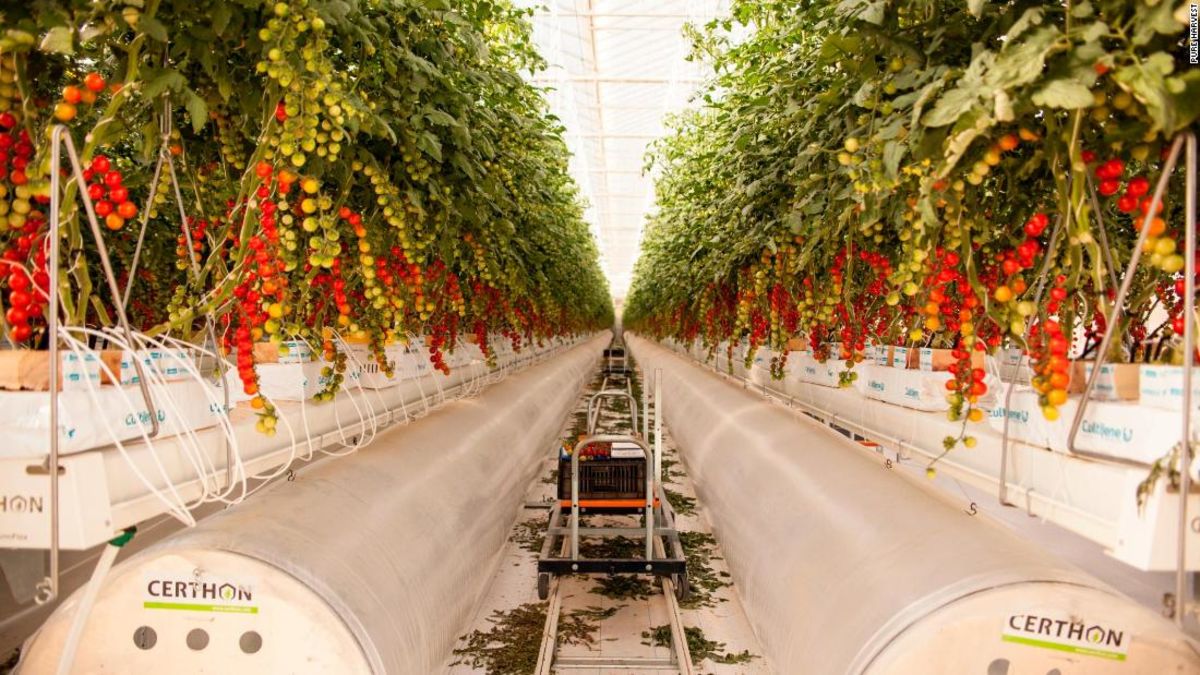Can desert greenhouses resolve food security time bomb? - 4 minutes read
 Can desert greenhouses deliver food security?
Can desert greenhouses deliver food security?The three-year-old start-up is aiming for nothing less than a transformation of the agriculture industry, and to resolve the growing threat to food security that faces the UAE.
The company, founded in 2016, has already established a one-hectare facility - the size of a soccer pitch - in the Abu Dhabi desert which produced its first crop of several varieties of tomatoes in November 2018.
The warehouse has since been producing around two tons of tomatoes a day, which are retailing for around $2 (8 dirhams) for 300 grams.
Pure Harvest's system works by controlling the greenhouse climate through a combination of mechanical and evaporative cooling systems -- the latter converting humidity into water that feeds the produce. The plants are grown in a nutrient bath instead of soil.
"The climate control system not only serves to maintain the most optimal growing conditions for our plants but it also keeps insects and diseases from breaching the growing area as air escapes from the rooftop vents at (high) pressure," she says.
"Now that the proof of concept facility has proven a success, the team is now focused on raising capital to expand into additional produce, and into the greater GCC region including Saudi Arabia," says Khan.
Pure Harvest is also planning to launch several new, large-scale facilities -- starting with a 4.5 hectare site in the UAE and a six hectare site in Saudi Arabia. This labor-intensive undertaking involves land acquisition, design and engineering work, and hiring specialist staff.
Most crucially it requires funding. The team are aiming to raise $160-180 million for multi-year expansion that will eventually bring them to a total of 50 hectares for cultivation.
As with Pure Harvest, the academics used a soil-free system -- in their case through an innovative foam base -- which Cameron believes is critical to the success of any such venture.
"Horticultural crops are generally grown from the highest-quality soils and those are degrading at the fastest rates...so we have a shrinking resource," he says. "(Further) in the Middle East soils have been incredibly degraded by agriculture and climate change so they are essentially unusable in a lot of places."
The professor adds that he is seeing greater buy-in from governments for the development of smart greenhouse models and that they are "getting viable" from a business perspective.
"We are teetering on the level of where this makes sense for capital investment purely for profit," says Cameron. "Whether they (smart greenhouses) are cheap enough for mass market commercialization...I would say we are right on the precipice."
But there are ongoing flaws to iron out, he adds, such as the amount of power required to operate such facilities, which can incur a high financial and environmental cost.
Source: CNN
Powered by NewsAPI.org
Keywords:
Desert • Food security • Agriculture • Food security • United Arab Emirates • Hectare • Abu Dhabi • Desert • Crop • Tonne • Tomato • Sulfur • United Arab Emirates dirham • Gram • Harvest • Greenhouse • Climate • HVAC • Evaporative cooler • Humidity • Water • Power station • Nutrient • Bathing • Soil • HVAC • Flora • Atmosphere of Earth • Pressure • Proof of concept • Gulf Cooperation Council • Saudi Arabia • Harvest • Economies of scale • Hectare • United Arab Emirates • Hectare • Saudi Arabia • Labor intensity • Engineering • Employment • Employment • Economic growth • Agriculture • Soil • System • Innovation • Horticulture • Crop • Water quality • Soil • Resource • Middle East • Soil • Agriculture • Climate change • Government • Economic development • Greenhouse effect • Environmental economics • Business • Investment • Business •